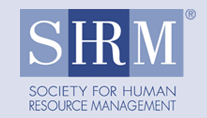Workforce Planning Using A Competency-Based Strategy: Why Linking Defined HR Competencies to Strategy Matters
For years, professional competencies have been explored to ensure effective talent management. Effective talent management using competencies results in the attainment of organizational objectives while determining strategy for future operations. Too often, talent management through competencies is overlooked in the HR department. Although required to build and validate competencies for other jobs, HR professionals are frequently overlooked without a standard valid competency model to structure career progressions. HR competencies are as critical as, if not more than, the competencies of other professionals.HR competency modeling results in a strategic workforce providing workforce planning for the organization as a whole. During this session, we will examine the link between long-term workforce planning and competencies. Then, we will review the importance of HR competencies and how competencies play a part in driving organizational strategy. You will work together to underline the most critical competencies needed for success in HR, as well as focus efforts to design a strategy for garnering these competencies across your organization.
Alexander Alonso, Ph.D., SHRM-SCP

Alexander Alonso, PhD, SHRM-SCP is the Society for Human Resource Management's (SHRM's) Chief Data & Insights Officer leading operations for SHRM's Certified Professional and Senior Certified Professional certifications, research functions, and the SHRM Knowledge Advisor service. He is responsible for all research activities, including the development of the SHRM Competency Model and SHRM credentials.
During his career, he has worked with numerous subject matter experts worldwide with the aim of identifying performance standards, developing competency models, designing organizational assessments, and conducting job analyses. He was also responsible for working on contract task orders involving the development of measurement tools for content areas such as job knowledge (like teacher knowledge of instructional processes) and organizational climates (like organizational climate forecasting in military health care).
Dr. Alonso received his doctorate in Industrial-Organizational Psychology from Florida International University in 2003. His works have been recognized for their contribution to real-world issues. They include being recognized by the Society for Industrial Organizational Psychology (Division 14 of the APA; SIOP) with the 2007 M. Scott Myers Award for Applied Research in the Workplace for the development of the federal standard for medical team training, TeamSTEPPS; being awarded a 2009 Presidential Citation for Innovative Practice by the American Psychological Association for supporting the development of competency model for team triage in emergency medicine; and receiving the 2013 SIOP Distinguished Early Career Contributions for Practice Award.
Throughout his career, he has published works in peer-reviewed journals such as Industrial and Organizational Psychology: Perspectives on Science and Practice, Journal of Applied Psychology, International Journal of Selection and Assessment, People and Strategy, Personality and Individual Differences, Quality and Safety in Health Care, and Human Resources Management Review. He has also authored several chapters on community-based change initiatives in workforce readiness, as well as co-authoring Defining HR Success: A Guide to the SHRM Competency Model in Practice.
Dr. Alonso also served as a columnist analyzing major trends in the workforce for The Industrial Psychologist and HR Magazine. In addition, he has served on several professional society boards including the SIOP and the Personnel Testing Council of Metropolitan Washington.

